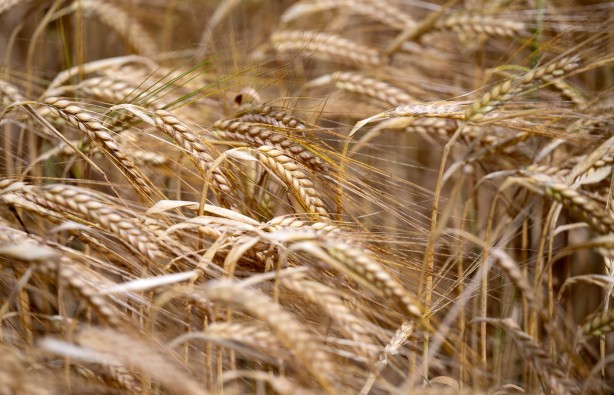By André Stahl and Sascha Meyer, dpa I Thursday, August 22, 2024
BERLIN – Farmers in Germany have brought in a significantly poorer grain harvest this summer due to frequent rain, and also face lower prices at market, according to the German Farmers’ Association.
The harvest was 39.3 million tons compared to 42 million tons in 2023, which the industry group called a “sobering result” for farmers.
The harvest quantities and, in some cases, the grain quality had suffered considerably in some regions due to recurring and sometimes very heavy rainfall.
German Farmers’ Association President Joachim Rukwied described this year’s harvest as another nail-biter that ended in great disappointment. Extremely wet weather from the autumn to early summer and a lack of sunshine dragged down the harvest and also slowed down work with combine harvesters.
“Farmers are let down. The yields are below those of previous years,” Rukwied told public broadcaster ZDF.
“The frustration in agriculture after this harvest, which was interrupted by recurring rainfall, is strong.”
The severely below-average grain harvest once again showed the clearly noticeable effects of climate change, he said.
Rukwied expressed concern about an “extreme drop in prices,” particularly on the grain markets. In conjunction with high operating costs for things like fuel, Rukwied said grain cultivation in Germany is becoming economically very difficult for farmers.
He called on the government to ease regulatory requirements, which he said are hurting farmers and making things even more difficult.
“In some areas, we are no longer allowed to fertilize according to demand and can no longer protect the plants from pests and infections,” he said.
There has been a 10-year decline in grain and rapeseed yields, said Rukwied, with declining quality, too.
But despite the poorer harvest, Rukwied said he does not expect prices to rise for consumers. There was a significant rise in food prices between 2022 and 2023, but inflation has slowed this year.
“Our prices have now returned to an unsatisfactory level and our share of the final price is constantly decreasing,” said Rukwied.
In recent weeks, rain has repeatedly slowed down combine harvesters in many regions of Germany.
At the start of the harvest at the beginning of July, grain yields were expected to be close to average.
However, expectations then clouded over with wetter weather.
Rukwied credited widespread protests by farmers in Germany and elsewhere in the European Union for preventing “unjustified tax increases” on the entire sector.
“We have turned around the agricultural policy agenda in Europe,” he said.
But he also warned that in Germany, new legislative proposals are constantly being introduced that are impractical and not aligned with agricultural practices. He said frustration among farmers in the country remains high.

